This week’s #kanji is #精, which is made of its semantic element of #こめへん(米) and phonetic element of 靑 (an older version of 青).
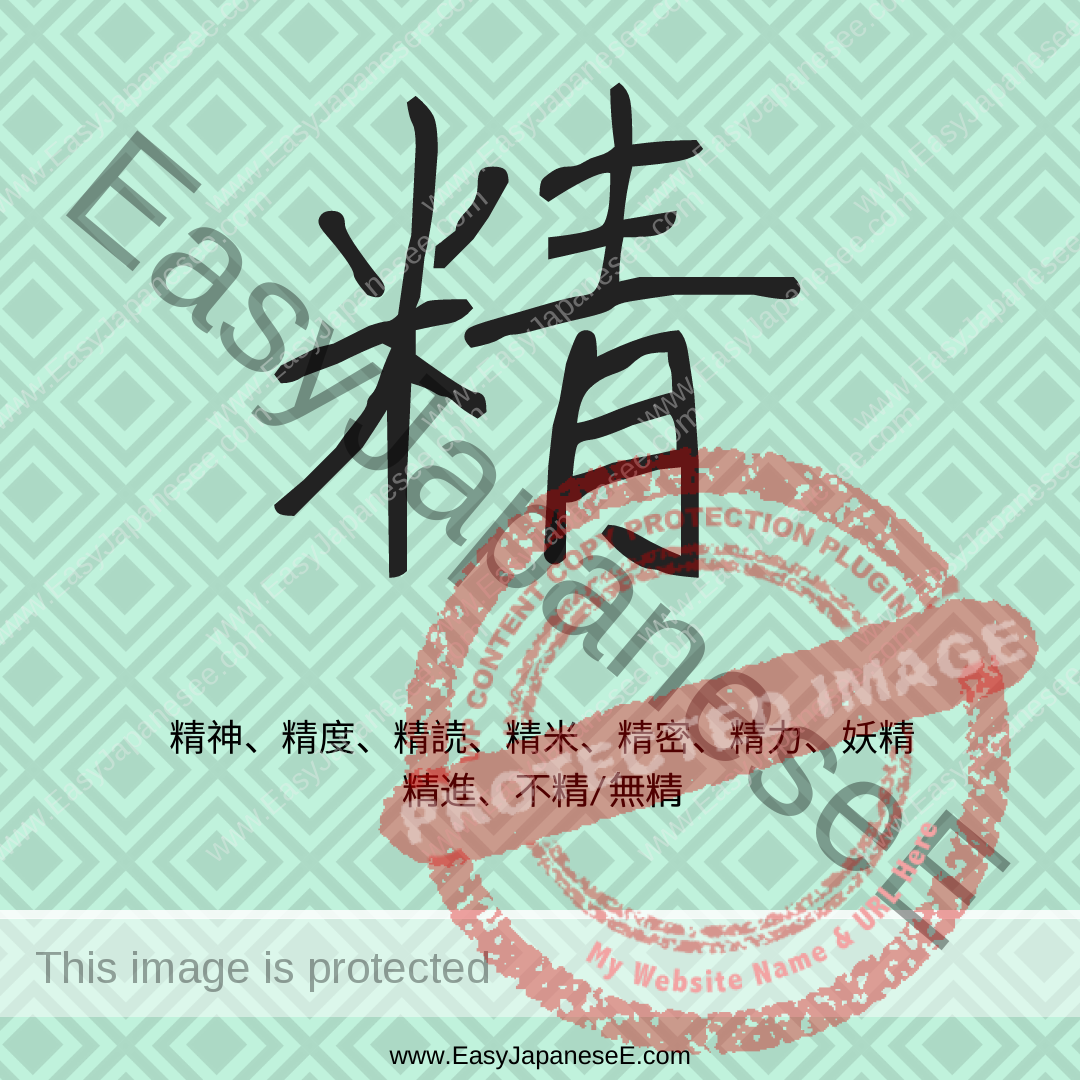

This week’s #kanji is #精, which is made of its semantic element of #こめへん(米) and phonetic element of 靑 (an older version of 青).
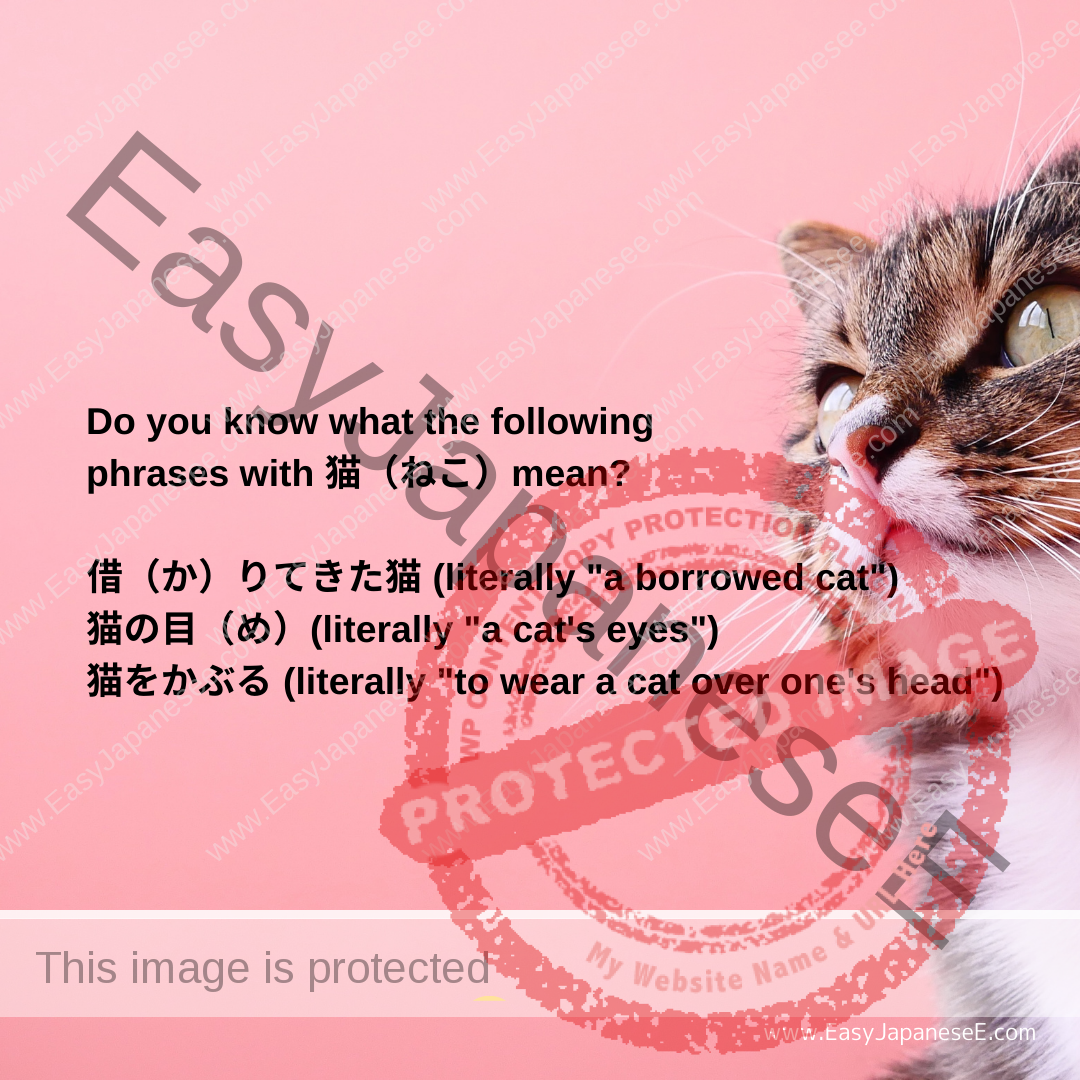
借(か)りてきた猫(ねこ) describes “meekness” うちの娘(むすめ)は人前(ひとまえ)では借(か)りてきた猫(ねこ)のようにおとなしい。Our daughter is as quiet as a lamb in front of other people. 猫(ねこ)の目(め)describes frequent changes 政府(せいふ)の政策(せいさく)は猫(ねこ)の目(め)のように変(か)わる=…
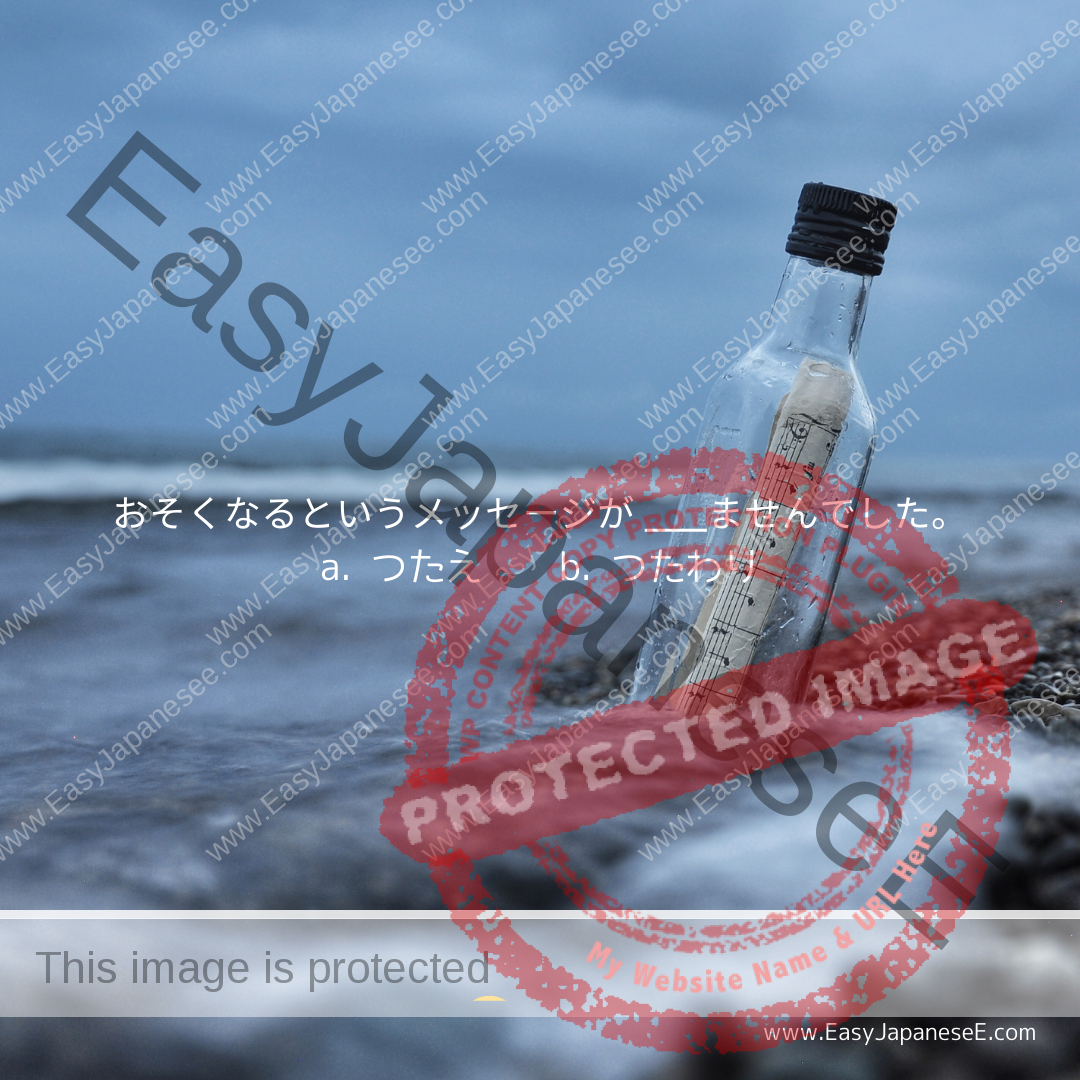
おそくなるというメッセージが ませんでした。a. つたえ b. つたわり The intended meaning is: “The message that I would be late didn’t get conveyed” so…

あしたは 学校(がっこう)に こられない。=あしたは 学校(がっこう)に ことが できない。a. きる b. くる c. こられる d. これる The intended meaning is: “I cannot come…

明日(あした)は会社(かいしゃ)_パーティーがあります。a. で b. を c. は d. に If you have picked d. に because the verb is あります, then…
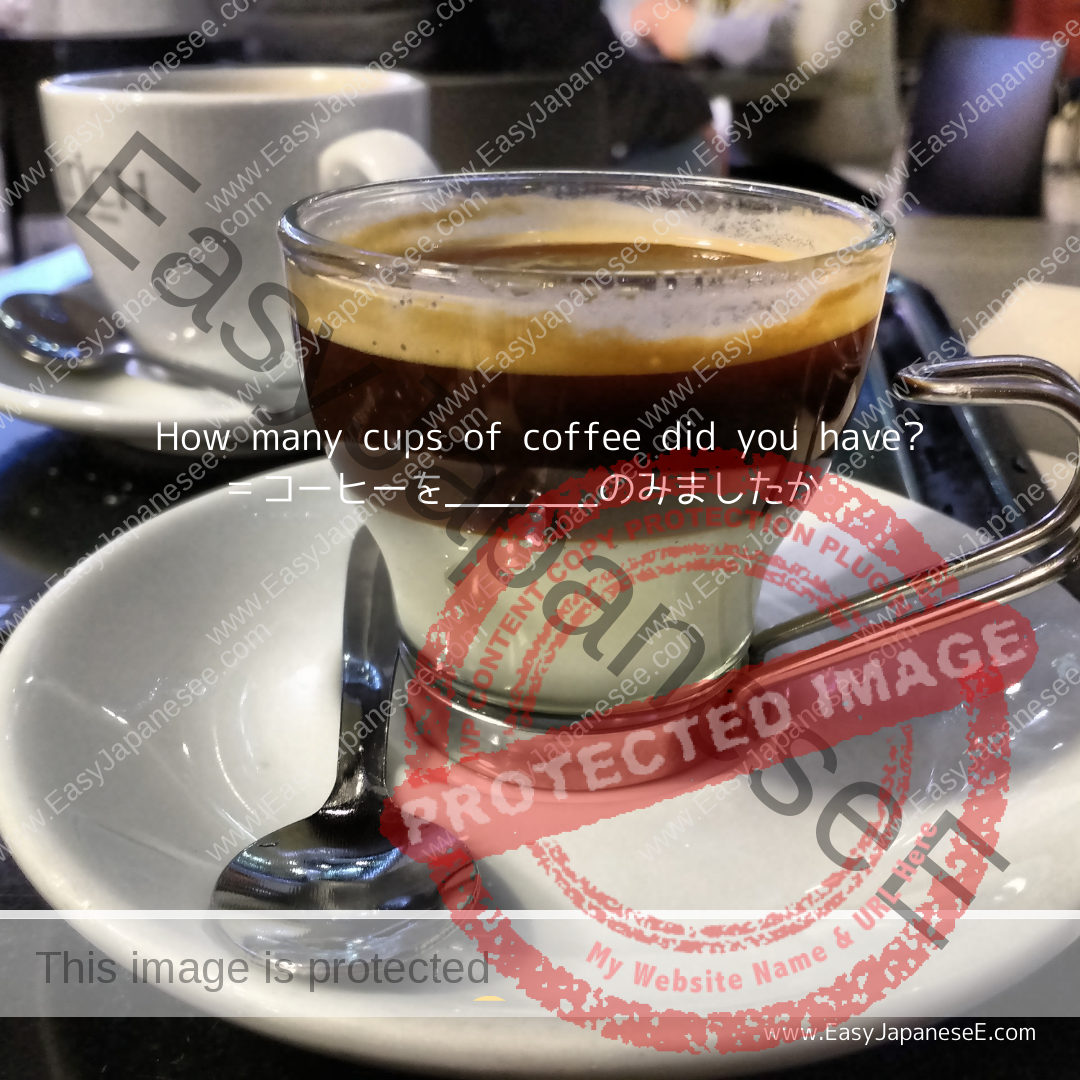
This post explains how counters are used in Japanese and lists commonly used counters with their question form as well. Bookmark the page for future reference.
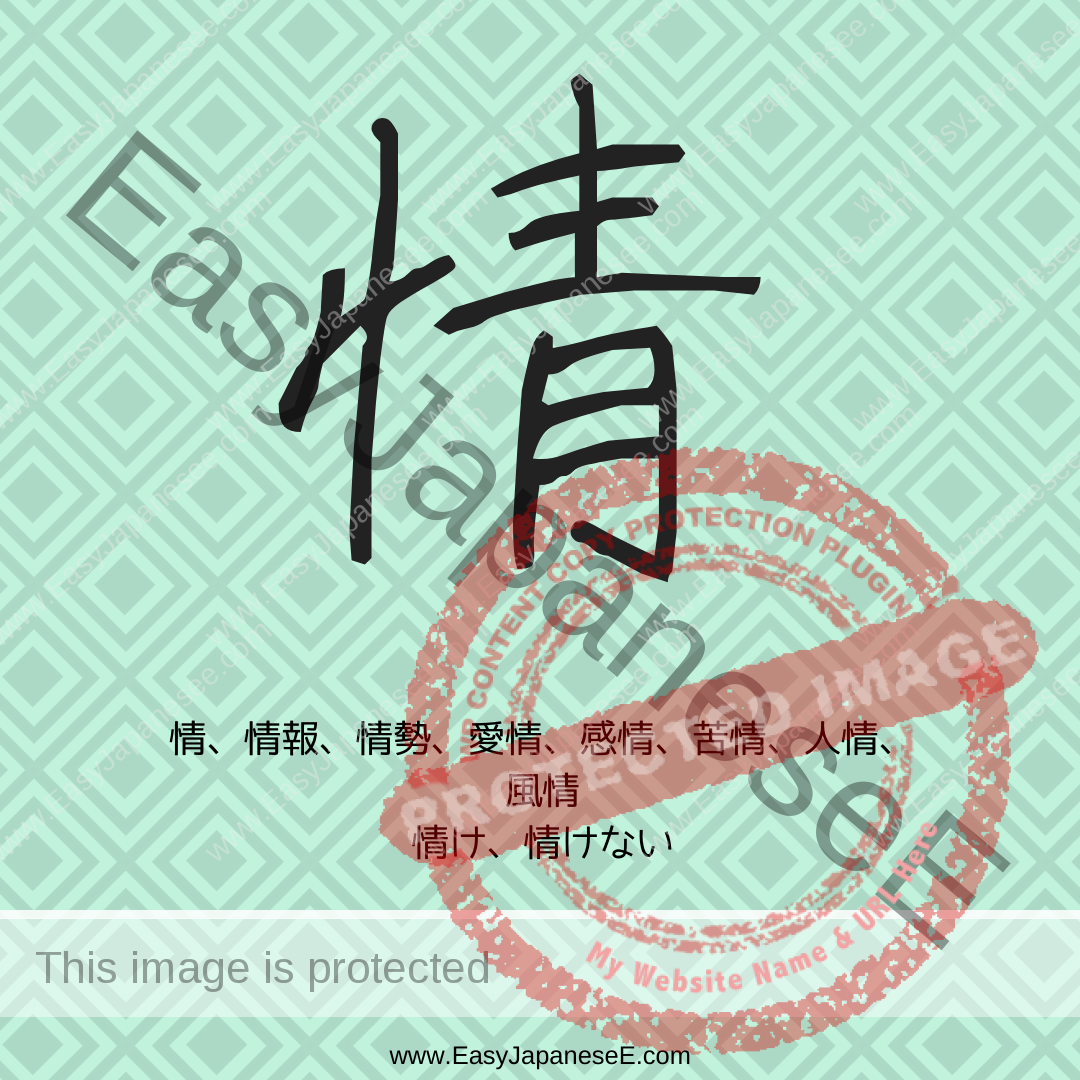
This week’s #kanji is #情, which is made of its semantic element of #りっしんべん(忄) and phonetic element of #靑, although…

What is 水(みず)の泡(あわ)?What does that mean? 水(みず) = waterの = a particle (attribute marker, joining 2 nouns)泡(あわ) = a bubble…

the taxi I stoppeda. とまった タクシーb. とめた タクシー I stopped the taxi, so it must be the choice with a…
![ちちと [ ][ ][ * ][ ] こうえんに いきました。](https://www.easyjapanesee.com/wp-content/uploads/2020/11/201125-桜がきれいな公園.png)
Choose the word that comes in the third bracket?ちちと [ ][ ][ * ][ ] こうえんに いきました。a. きれい b. な…
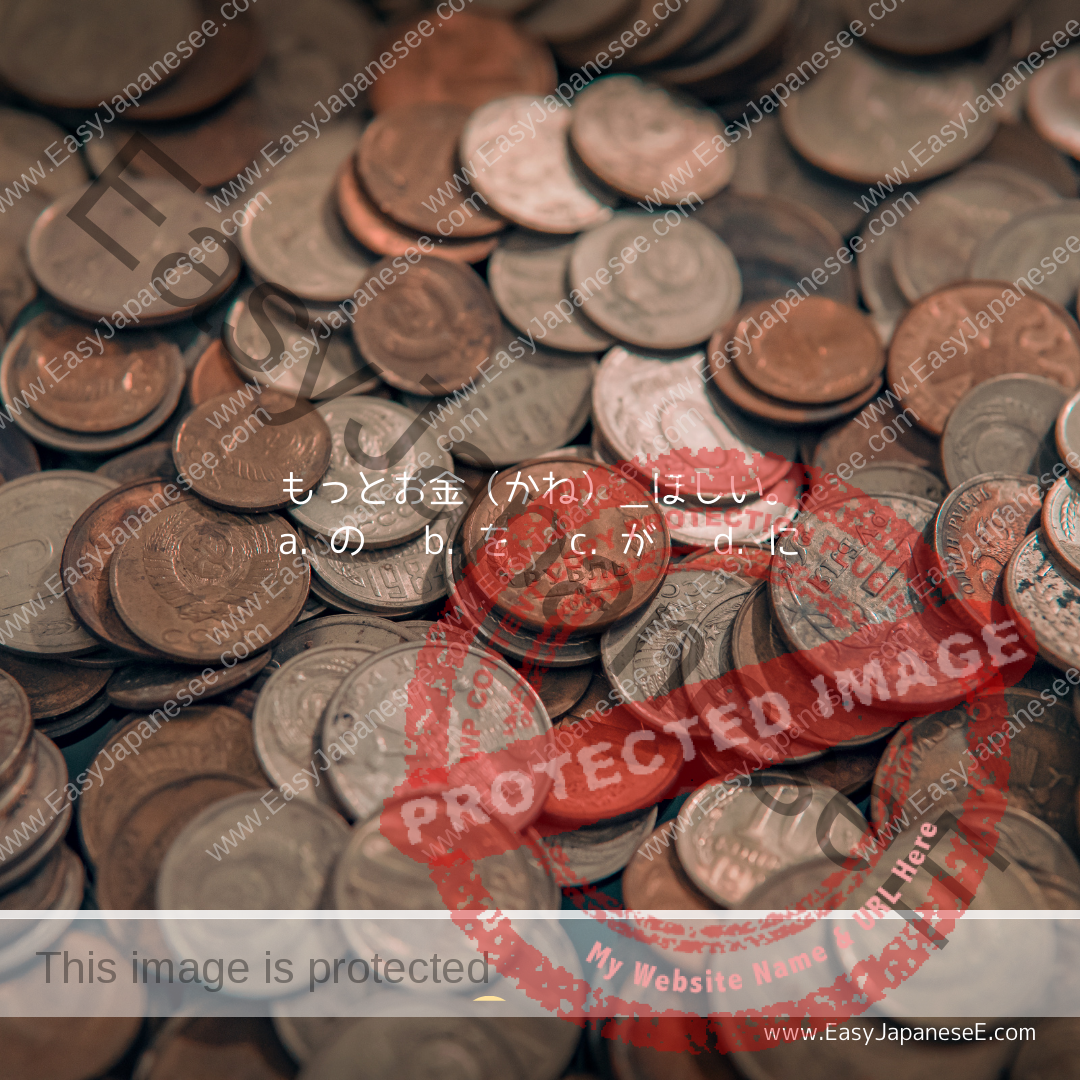
もっとお金(かね)_ほしい。a. の b. を c. が d. に The intended meaning is: “I want more money” and the answer is…
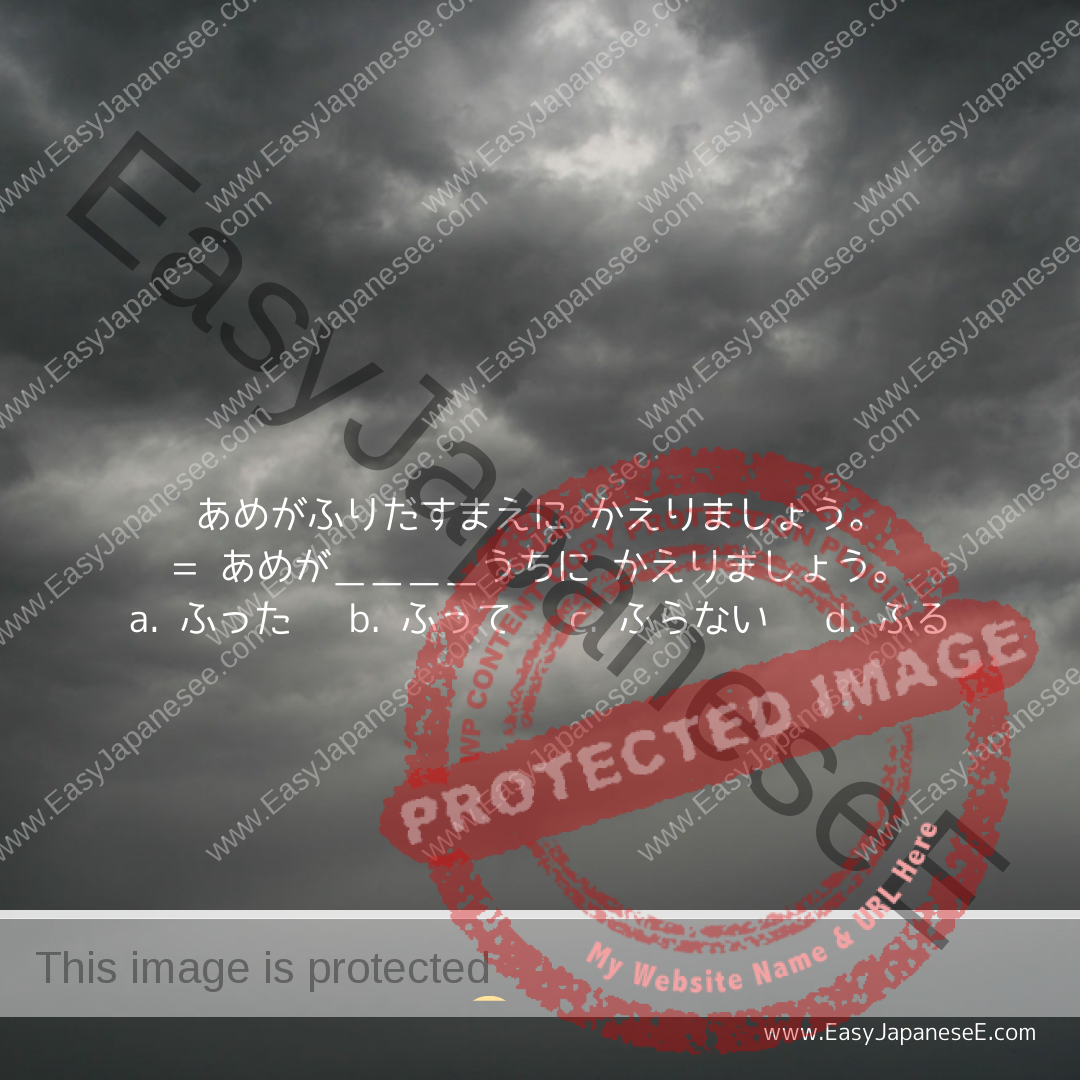
The other day, I talked about ~うちに that means “while….” ~ないうちに means “while … not…” so it is more like “before … start(s)/do(es) ~.”
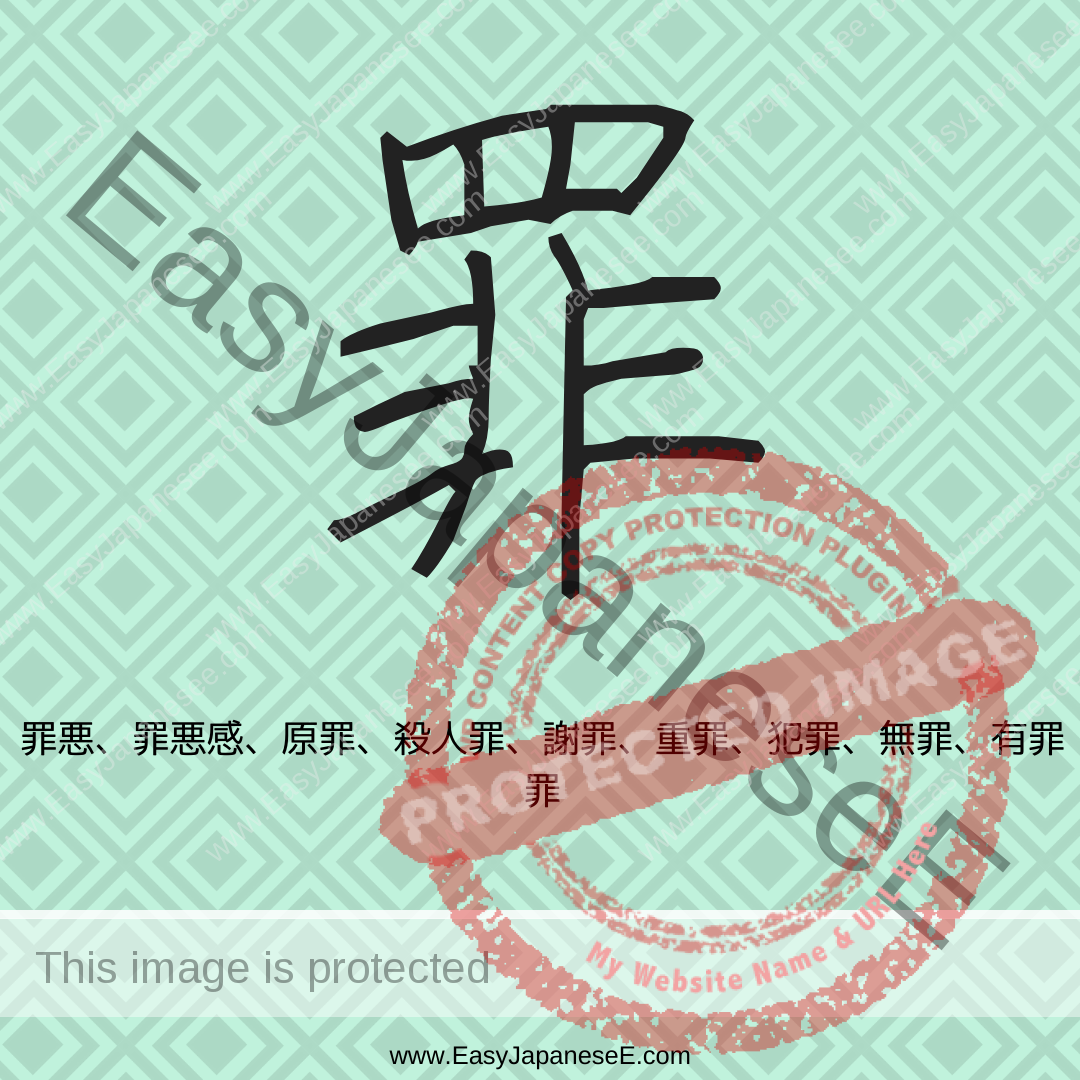
This week’s #kanji is #罪, which is made of its semantic element of #あみがしら(罒) and its phonetic element of 非,…
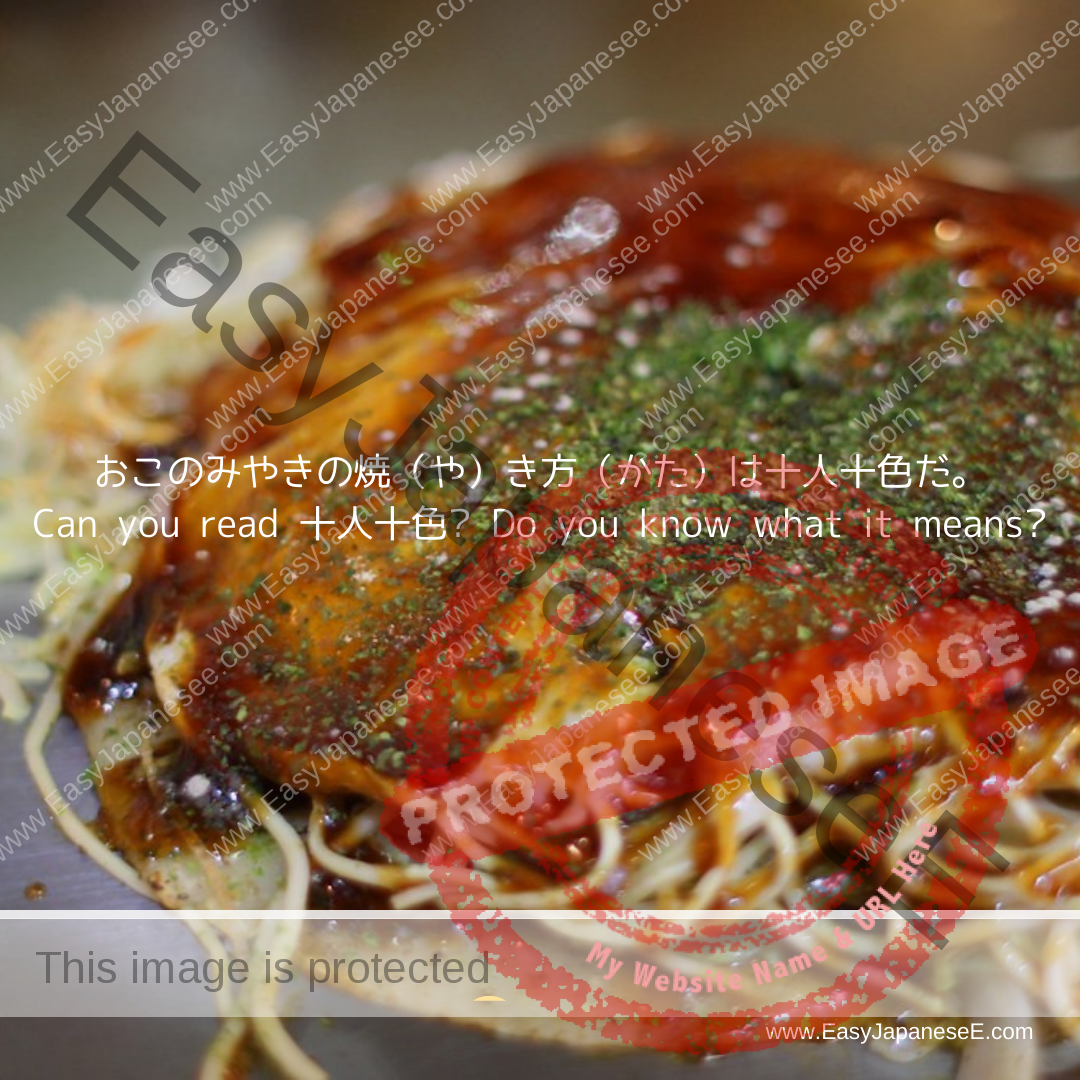
おこのみやきの焼(や)き方(かた)は十人十色だ。Can you read 十人十色? Do you know what it means? It’s read as じゅうにんといろ and its literal meaning is, “10…
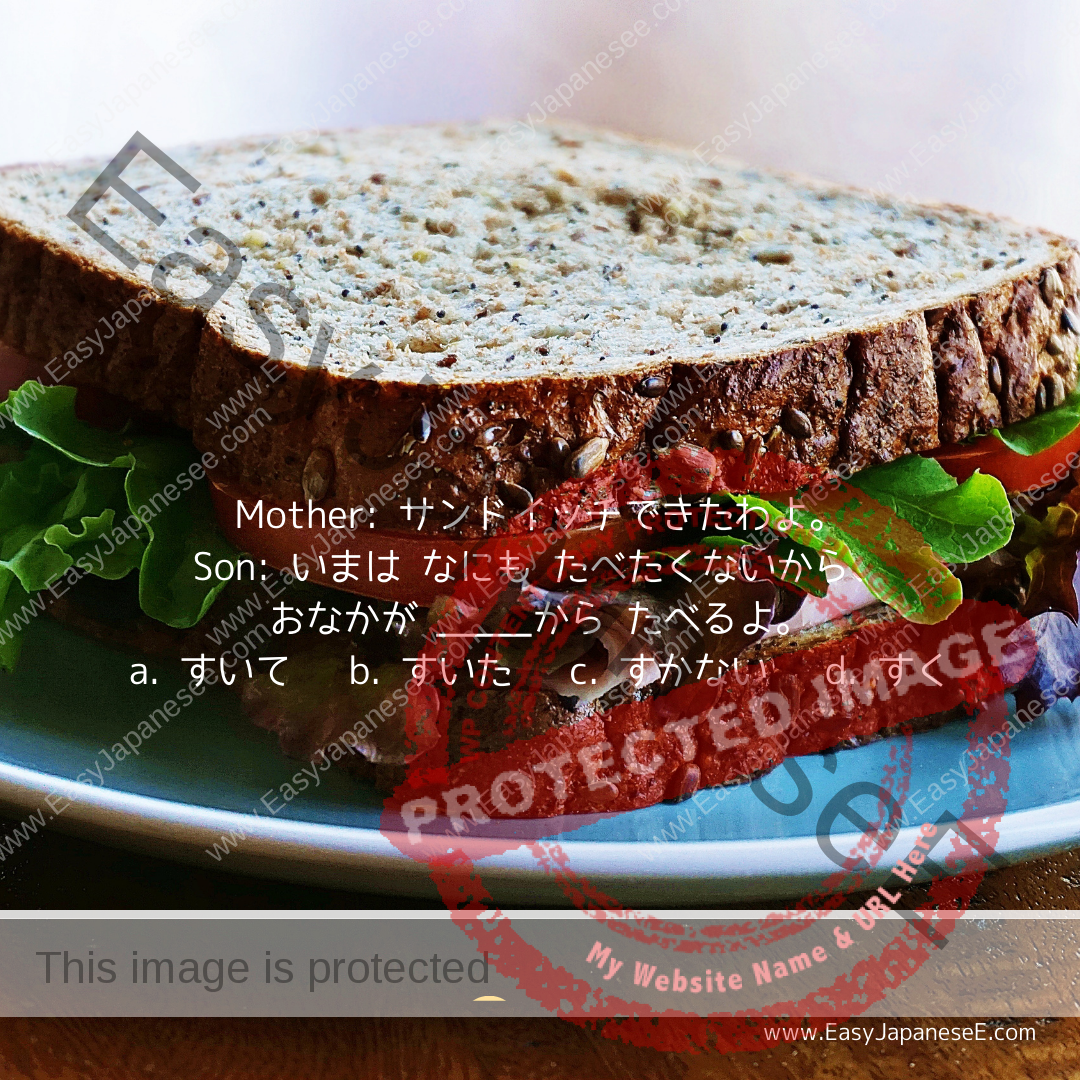
から has many meanings but all beginners need to remember the difference between ~てから and ~たから. Check these example sentences.

This page explains how to express “obligation”, i.e. “must ~” or “have to ~.” In Japanese it is expressed in double negative.
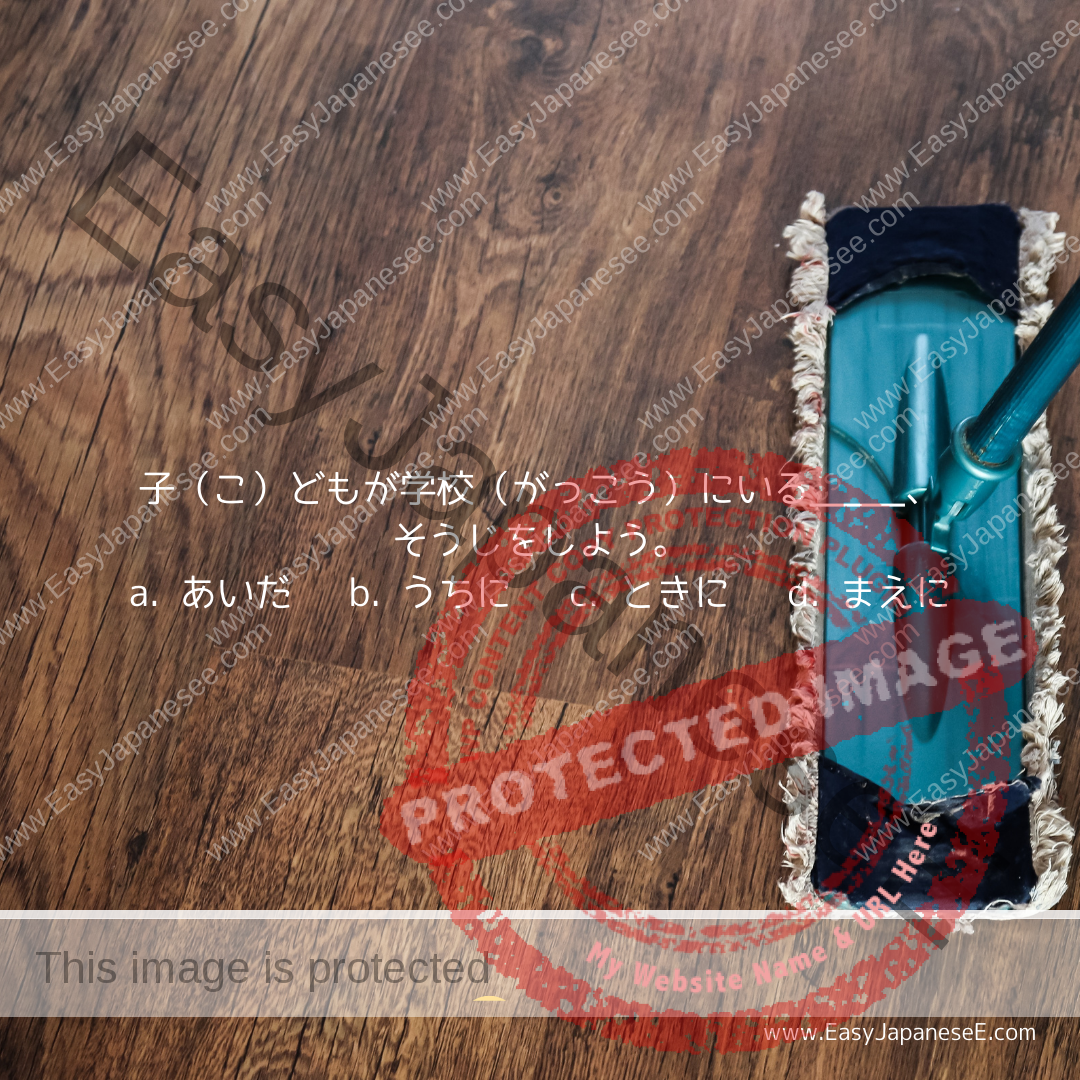
~うちに means “while ~” or “before the state of ~ ends.” It is similar to ~あいだに but ~うちに has a bit more urgent sound. Read examples here.
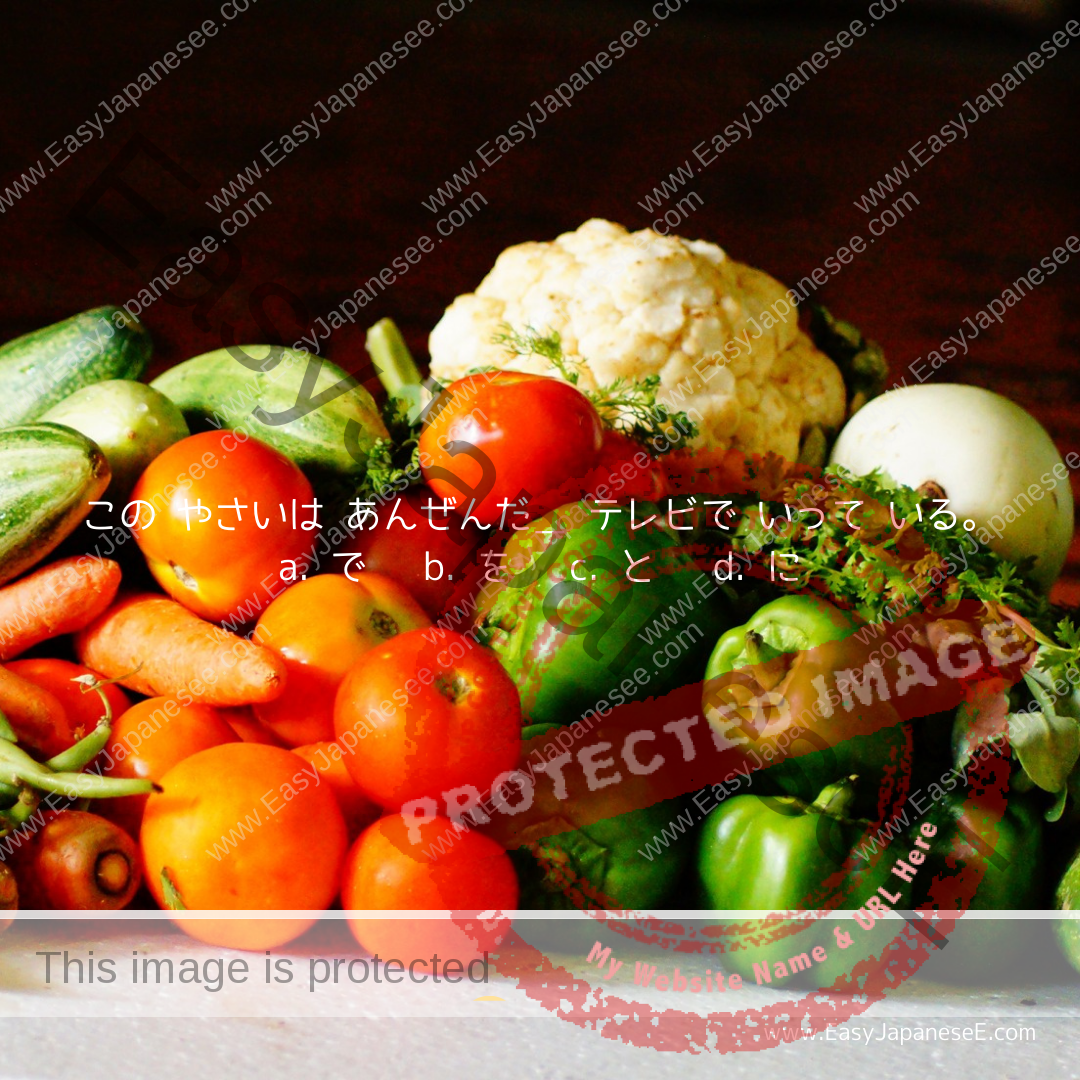
この やさいは あんぜんだ_ テレビで いって いる。a. で b. を c. と d. に The intended meaning is: They are saying…
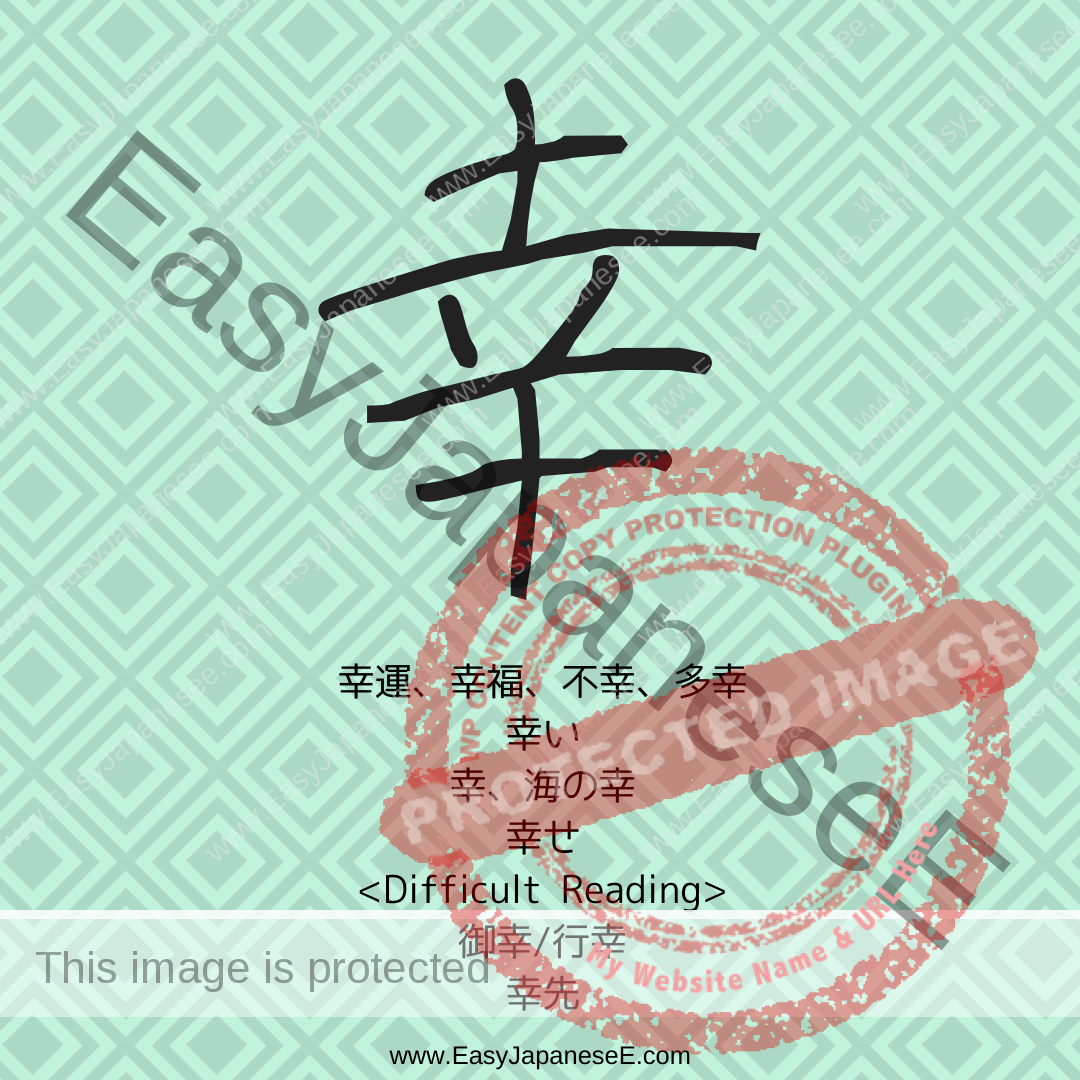
This week’s #kanji is #幸. This kanji is usually listed under the radical of 干 (ほす/かん) but apparently it is…

チョコレートが好(す)きだけど、太(ふと)るから食(た)べない。チョコレートが好(す)き__、太(ふと)るから食(た)べない。a. が b. だが c. ですが d. なが The intended meaning is: I like chocolate but as I don’t eat…
